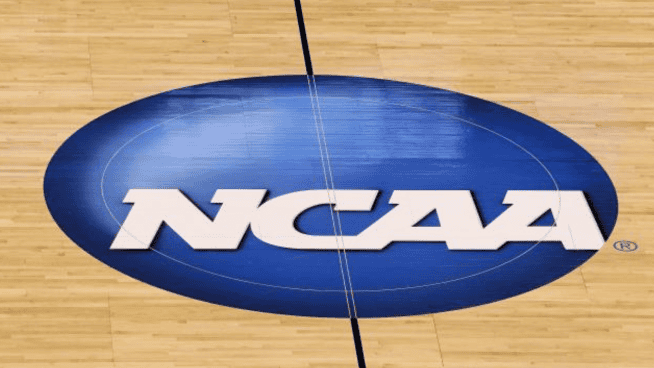Why Heisman Trophy Winner Lamar Jackson Almost Quit Football as a Freshman
Imagine Lamar Jackson, quarterback, never existed at all. Louisville would still be among the schools never to have produced a Heisman trophy winner. A photo of the “Lamar Leap” would not hang on the wall of their football facility. There’d be no seven total touchdowns against Boston College last season, or multiple highlight reels where Jackson runs so quickly that his pursuers cannot even be found in the same frame. College football, and really life itself, would be more bland without Jackson.
This alternate timeline, a world without Jackson playing football at Louisville, came dangerously close to happening. Despite possessing a bionic arm and enough athletic ability to distribute across an entire football roster, Jackson, during his freshman year, found himself frustrated and doubting his own ability.
“At one point I wanted to give up because I didn’t know the playbook like I should have,” Jackson told STACK last weekend at Steve Clarkson’s QB Retreat. “[Arriving at Louisville] in May and then having to play in a September game, there were a lot of things going on in my mind. Stuff I can’t read out there like former quarterbacks could.”
As a quarterback at Boynton Beach (Florida) High School, Jackson played strictly from the shotgun. When he landed at Louisville, the offensive staff tried to install a handful of plays that featured Jackson under center. It did not go well.
“It was horrible for me,” Jackson told ESPN. “I was clumsy. I wasn’t really progressing well at it, and we just went in the gun after that.”
Jackson told STACK that he was trying to learn everything—the playbook, defensive schemes, the cadence behind center—much too fast instead of taking his time. Despite his frustrations, he started spending extra time after practice working on his craft and holed up in the film room. Louisville went 8-5 and earned a berth in the Music City Bowl. It was during his preparation for his first bowl game that everything finally started to slow down.
“I started hitting the playbook, staying after, trying to learn as much as I could, trying to scheme up Texas A&M,” Jackson said. “Bowl preparation is a long break, so you get to learn a lot of things.”
Louisville won their bowl game, and one season later, Jackson was holding the Heisman trophy. Now, as he heads into a junior year full of high expectations, he’s already spent the offseason taking snaps under center, something Louisville once scratched because he was so bad at it, and better recognizing defensive coverages so he can call audibles at the line.
“I’m trying to have it to where I’m Tom Brady with it,” Jackson told ESPN.
As Jackson looks back on where he was as a freshman and where he is now, he offers up this piece of advice to any quarterback entering a D-I college program:
“If you’re young, you’ve got to hit that playbook hard. And never give up,” he said.
Photo credit: Joe Scarnici/Getty Images
READ MORE:
RECOMMENDED FOR YOU
MOST POPULAR
Why Heisman Trophy Winner Lamar Jackson Almost Quit Football as a Freshman
Imagine Lamar Jackson, quarterback, never existed at all. Louisville would still be among the schools never to have produced a Heisman trophy winner. A photo of the “Lamar Leap” would not hang on the wall of their football facility. There’d be no seven total touchdowns against Boston College last season, or multiple highlight reels where Jackson runs so quickly that his pursuers cannot even be found in the same frame. College football, and really life itself, would be more bland without Jackson.
This alternate timeline, a world without Jackson playing football at Louisville, came dangerously close to happening. Despite possessing a bionic arm and enough athletic ability to distribute across an entire football roster, Jackson, during his freshman year, found himself frustrated and doubting his own ability.
“At one point I wanted to give up because I didn’t know the playbook like I should have,” Jackson told STACK last weekend at Steve Clarkson’s QB Retreat. “[Arriving at Louisville] in May and then having to play in a September game, there were a lot of things going on in my mind. Stuff I can’t read out there like former quarterbacks could.”
As a quarterback at Boynton Beach (Florida) High School, Jackson played strictly from the shotgun. When he landed at Louisville, the offensive staff tried to install a handful of plays that featured Jackson under center. It did not go well.
“It was horrible for me,” Jackson told ESPN. “I was clumsy. I wasn’t really progressing well at it, and we just went in the gun after that.”
Jackson told STACK that he was trying to learn everything—the playbook, defensive schemes, the cadence behind center—much too fast instead of taking his time. Despite his frustrations, he started spending extra time after practice working on his craft and holed up in the film room. Louisville went 8-5 and earned a berth in the Music City Bowl. It was during his preparation for his first bowl game that everything finally started to slow down.
“I started hitting the playbook, staying after, trying to learn as much as I could, trying to scheme up Texas A&M,” Jackson said. “Bowl preparation is a long break, so you get to learn a lot of things.”
Louisville won their bowl game, and one season later, Jackson was holding the Heisman trophy. Now, as he heads into a junior year full of high expectations, he’s already spent the offseason taking snaps under center, something Louisville once scratched because he was so bad at it, and better recognizing defensive coverages so he can call audibles at the line.
“I’m trying to have it to where I’m Tom Brady with it,” Jackson told ESPN.
As Jackson looks back on where he was as a freshman and where he is now, he offers up this piece of advice to any quarterback entering a D-I college program:
“If you’re young, you’ve got to hit that playbook hard. And never give up,” he said.
Photo credit: Joe Scarnici/Getty Images
READ MORE:











